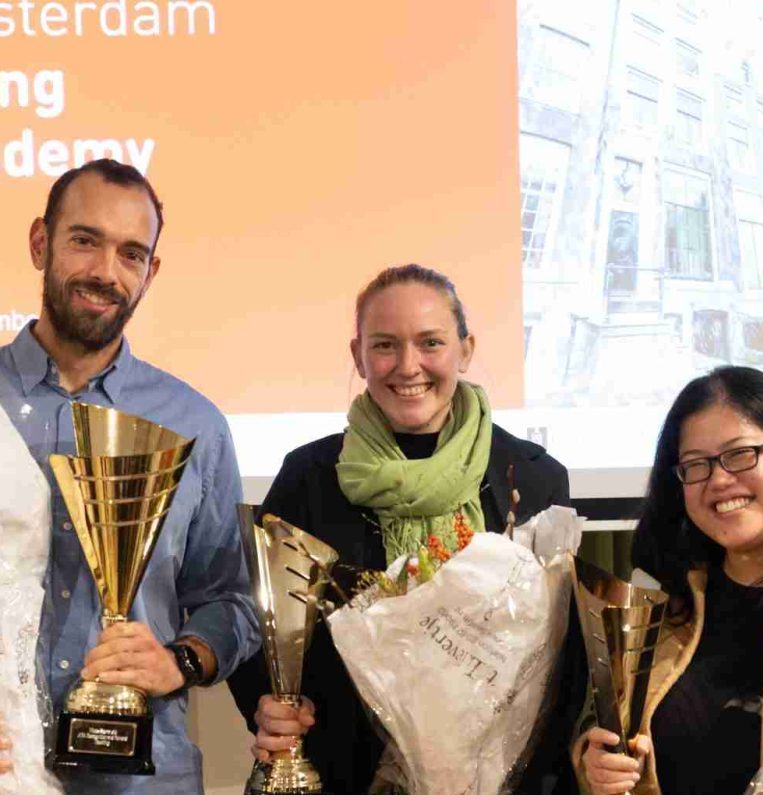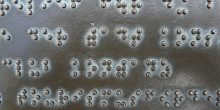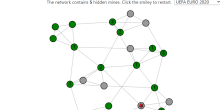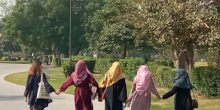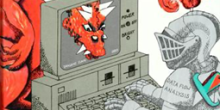Last week I had the honour to receive an award from the Amsterdam Young Academy (AYA) for my contributions in teaching in the BSc in mathematics at the University of Amsterdam. I thought of many things during this time, and I wanted to write some thoughts down.
It was three weeks ago when I received an email from a colleague of mine that I was chosen by the committee to receive the award in the category "Teaching". This was an incredible surprise since I didn't know I was nominated. Many emotions and thoughts made that moment unique, it was a moment I wanted to celebrate!
In the days that followed, I was thinking a lot about "how do I teach?". The first thought that came to mind is that I am enthousiastic about mathematics and I try to convey this enthousiasm during my teaching. This is probably how I used to teach during my time as a PhD student or when I first started as a teacher in the bachelor program. But I realized quickly that there is much more to say than just being enthousiastic. After my first teaching experiences, I realized that enthousiasm is important but is often not enough.
When I had to structure a whole course I realized how important it is to dive into educational theory to properly organize and set up your teaching. From establishing clear and feasible learning objectives to developing all the material students would use, choosing the learning and teaching activities that would yield the best results, and setting up the examination. This was a very complex procedure, mostly because my background back then was in mathematics and not in educational research. Thankfully the university offers very good supervision for new teaching staff.
After working for five years as a teacher I realize that developing and properly coordinating an educational program demands time and energy. Only after teaching the same course for years, do I feel that it has taken its final form! The first time it was incredibly stressful and felt energy-consuming, the second year it went more smoothly but I still didn't feel entirely comfortable to make improvements, and only after the third year I felt comfortable to experiment with new teaching methods that could improve the quality of the course.
As I keep teaching, and keep growing in my teaching, I realize how important it is to do educational research. Educational research helps you understand how students perceive your teaching, and whether the desired learning outcomes are reached. Through good quality educational research students and teachers develop a common vision about learning, teaching, and doing mathematics. Such a shared vision can empower both students and teachers and create a community where we motivate each other to excel and reach our full potential. At the same time, a shared vision shows the way to an academic community where everyone can grow not only as a scientist but also as a person. A community where mutual respect, well-being, and learning are the core principles the educational program is built upon.
Back to the event
The event took place on the evening of Tuesday 7 November in the Hortus Botanicus in Amsterdam. During the evening the new members of AYA were introduced in a very joyful and energetic atmosphere. There was so much energy in the room and people were so eager to meet each other and interact. It was an amazing occasion to attend. At the closing of the event, three prizes were awarded, in the categories of Teaching, Societal impact, and Academic community support. Next to receiving the award in Teaching, it was amazing to learn about the work of other colleagues. In the category of Societal impact, the prize was awarded to Dr. Katja Tuma, assistant professor in the Computer systems and Network Institute at the VU. She has been organizing for two years the women-only hackathon Hack4her, a multitude of social, learning and skill-practice events where women could engage in a safe space in a discipline that is often male-dominated. In the category of Academic community building, the prize was awarded to Dr. Abbey Steele, associate professor in Political Science at the UvA, for her active involvement in anti-discriminatory and racial justice including innovating the recruitment procedures for both staff and students. It was an honour to stand next to these amazing people!
While receiving the award the rector of the University of Amsterdam read a short nomination text close colleagues of mine had submitted. While hearing these wonderful words, and knowing that my colleagues had nominated me for this award, I realized that being recognized and nominated by your colleagues is the greatest honour! I want to thank them all for the pleasant and motivating working environment they have created at the Korteweg de Vries Institute of Mathematics! The energy and the morale are high, and we keep going to achieve an educational program where everyone feels welcome and safe to learn and grow!

